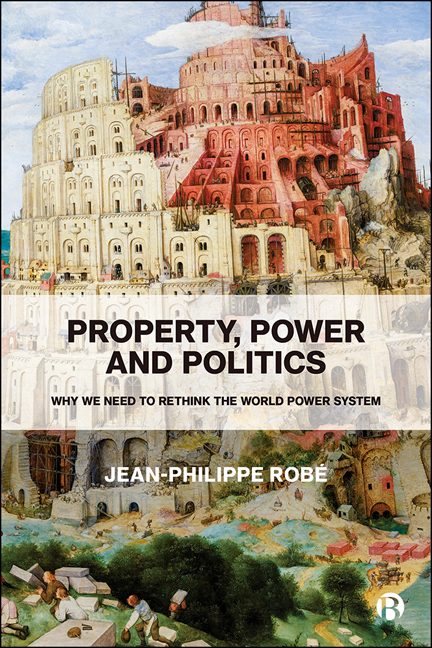2 - The Modern Constitutional Mode of Government
Published online by Cambridge University Press: 12 March 2021
Summary
In Chapter 1, I have presented the concept of property in a constitutional perspective. Modern property is in no way a ‘state of nature’ notion. It is part of a highly sophisticated social system. It is a constitutional prerogative towards objects of property protected by the State and against the State. It has very little to do with possession. Property includes a right to exclude, owners having rights of decision-making as a matter of principle towards what they own. Laws affecting the use of property are only limited derogations to a prerogative which exists as a matter of principle. Understanding property in this fashion is a key to the understanding of the operation of the existing World Power System.
In the coming chapter, the notions of the State and of the ‘Organs of the State’ are explained in some detail to distinguish their prerogatives from private prerogatives. Private property, as a private prerogative, grants autonomy from the ‘Organs of the State’. It is part of the constitutional prerogatives protecting private persons against excessive public governmental encroachments. It is part of a constitutional order which combines both democracy and distrust for democracy, by limiting the prerogatives of the Organs of the State. The approach developed proposes a unitary view of the Constitution as providing for both public and private prerogatives, the first ones being exercised by Organs of the State and the second ones by legal persons which are not Organs of the State. Public and private prerogatives operate via fundamentally different rules, private property rights enabling their holders to exercise their prerogatives in a despotic manner, i.e. they can do what they want with what they have without the need to take anybody's advice or authorization.
In a modern constitutional system of government protecting property rights, there are two sets of interacting rules. One of the purposes of the Constitution is to define the operation of the branches of public government, usually via democratic institutions. This is the most traditional way of understanding what a ‘Constitution’ is. But the Constitution also aims at protecting individual persons and minorities against governmental abuses.
- Type
- Chapter
- Information
- Property, Power and PoliticsWhy We Need to Rethink the World Power System, pp. 87 - 106Publisher: Bristol University PressPrint publication year: 2020



